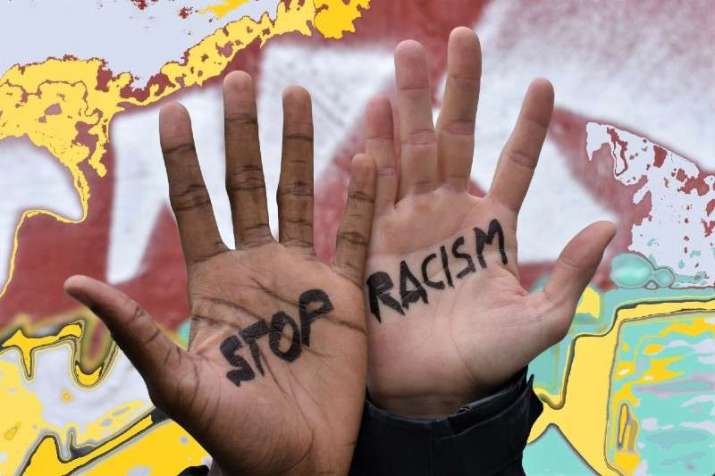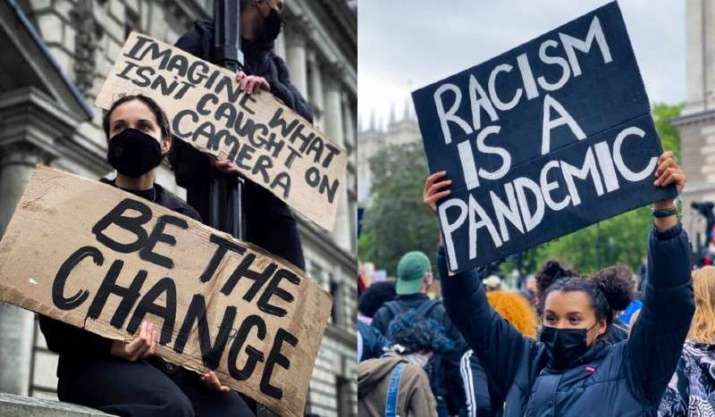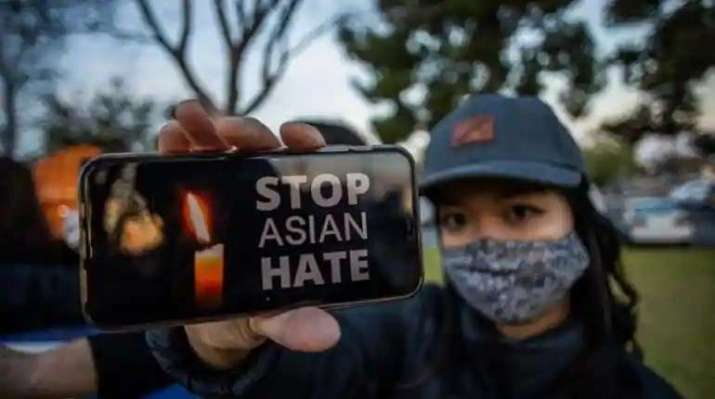FEATURES|THEMES|Commentary
Buddhistdoor View: Beyond Boundaries, Beyond Fear – Responding to a Rise in Hate
 From sophe.org
From sophe.orgThe murder of eight people in Atlanta, Georgia, this week—six of whom were women of Asian descent—has underscored the rising concern in the United States and beyond about the specter of racism and racist violence, often combined with factors such as misogyny, xenophobia, and economic inequality. Racism is nothing new, of course, but with so much human progress in recent decades, it is astounding to still encounter the rawness and barbarism that racist discrimination still engenders. Despite societal gains, these murders and the documented rise in hate crimes against Asian Americans leave us wondering how we might bring true healing to a world so scarred by hatred.
In his first major speech as president on 11 March, Joe Biden denounced “vicious hate crimes against Asian-Americans, who have been attacked, harassed, blamed, and scapegoated.” He continued: “At this very moment, so many of them—our fellow Americans—they’re on the front lines of this pandemic, trying to save lives, and still they are forced to live in fear for their lives just walking down streets in America.” He emphasized: “It’s wrong, it’s un-American, and it must stop.” (The New York Times)
The problem is not restricted to the US. Agencies tracking hate crimes have documented increases in reports from Australia, Brazil, Canada, Italy, New Zealand, Russia, and the United Kingdom. In May last year, UN Secretary General Antonio Guterres said: “The pandemic continues to unleash a tsunami of hate and xenophobia, scapegoating and scare-mongering.” He urged governments to “act now to strengthen the immunity of our societies against the virus of hate.” (TIME)
 From huckmag.com
From huckmag.comSouth Asians and Pacific Islanders also face racism in Hong Kong, where a rise in discrimination has been documented against ethnic minorities. As Jessie Lau wrote for The Diplomat in January: “In Hong Kong, dark-skinned ethnic minorities have a long history of being framed as scapegoats for the city’s social problems. . . . Various anti-refugee campaigns—such as those in 2016—have unfairly painted dark-skinned asylum seekers as criminals and illegal migrants taking advantage of local resources.”
To begin, we must condemn the growing violence against Asians and Pacific Islanders and offer our solidarity with all who have been harmed and for communities seeking solutions to this violence. For too many Asians and Pacific Islanders throughout the world, the COVID-19 pandemic has only exacerbated long-standing systems of oppression and discrimination. Religious leaders, celebrities, ordinary people, and most of all politicians must bring light to these problems that have too long been concealed in the dark, and instead bring hope to people who have too long been denied a safe future.
 From wionews.com
From wionews.comIn light of humanity’s continued propensity to create racial boundaries and cause harm, sometimes ultimate harm, what wisdom can Buddhism bring to bear? As with so many Buddhist ideas, it is important to note at the outset that this wisdom often hasn’t been followed by Buddhists themselves, who have far too often created, justified, and exacerbated racial, ethnic, and religious boundaries. However, from the Buddha to contemporary Buddhist leaders such as Thich Nhat Hanh and His Holiness the Dalai Lama, at the heart of the teachings is a dual process of reaching out in understanding to connect with all beings and looking within to dissolve the unreal ego or fabricated notion of a permanent, controllable self.
In terms of reaching out and connecting, the simplest and most direct way is through the emotion of loving-kindness. As the Karaniya Metta Sutta (Sn 1.8) says:
Wishing: In gladness and in safety,
May all beings be at ease.
Whatever living beings there may be;
Whether they are weak or strong, omitting none,
The great or the mighty, medium, short or small,
The seen and the unseen,
Those living near and far away,
Those born and to-be-born —
May all beings be at ease!*
The words can fall into one’s practice both on the cushion and in day-to-day life. As we pass by strangers on the street or public transport, at the grocery stores or in the park, we can wish them well. This is important for breaking down the barriers between self and other.
Another teaching is most often found in Tibetan Buddhism, that all beings around us today were our mother at one point in limitless time over our countless lives. Living in this realization, one cannot but hold all beings with care and respect. The American teacher Thubten Chodron offers a simple practice one can try in daily life: “If you’re sitting on the bus, standing in line, waiting in traffic, look around at the other people around you and in your mind say, ‘Hi mom.’ Okay? And just play the idea of this person has been your parent in a previous lifetime. This person has been kind to us in our previous lifetime. It is not like they’re total strangers.” (Thubten Chodron)
Unfortunately, it is increasingly clear that many people do not live in this understanding. Instead, across the world, narrower and narrower group identities are being formed with clear insider-outsider dynamics. These groups often stoke anger toward outsiders. Such groups can be small, such as a religious group or similar organization, or they can be as large as nations. In either case, the anger they stoke can be seen as clearly harming both those inside the group and those outside of it. As the commentator Buddhaghosa wrote some 1,500 years ago of cultivating anger: “By doing this you are like a man who wants to hit another and picks up a burning ember or excrement in his hand and so first burns himself or makes himself stink.” (Visuddhimagga IX, 23)
Time and again, we can take up these teachings: offering universal loving-kindness, seeing all beings as our mothers, and recognizing the harm caused to oneself and others through anger. In doing so we do not look away from suffering and we do not look away from the underlying conditions leading to suffering. For now, the most acute suffering is in the victims of the Atlanta shooting, in their families and friends, and a community thrown further into fear.
Moving forward, we might heed the advice of Bhante Seelananda, a Sri Lankan monk at the Bhavana Society: “The best thing to do is seek the cause of the problem objectively. That means removing the focus on individuals. Strive to find the root of the situation as not his, her, or their faults, but as based on conditions. Then seek the cause and remove the cause of the action.” (Bhavana Society)
Getting down to the root is no easy task. Luckily, there is a treasure trove of wisdom, both within Buddhism and beyond, to guide our path. Once we have turned in the moral direction of love and connection, we will have much help and great company on the path toward our collective liberation.
* Amaravati Sangha (trans.). 2013. Karaniya Metta Sutta: The Buddha's Words on Loving-Kindness" (Sn 1.8). Access to Insight (BCBS Edition), 2 November 2013. http://www.accesstoinsight.org/tipitaka/kn/snp/snp.1.08.amar.html
See more
8 Dead in Atlanta Spa Shootings, With Fears of Anti-Asian Bias (The New York Times)
‘This Isn't Just a Problem for North America.' The Atlanta Shooting Highlights the Painful Reality of Rising Anti-Asian Violence Around the World (TIME)
In Hong Kong, COVID-19 and Racism Make an Ugly Mix (The Diplomat)
Universal Loving Kindness (Karaniya Metta Sutta) (Access To Insight)
All beings have been our mother (Bhikshuni Thubten Chodron)
Asian hate crimes are an Australian problem, too. When will it stop? (GQ)
Fear And How To Overcome Fear: A Buddhist Perspective (Bhavana Society)
Related features from Buddhistdoor Global
Green Shoots of Hope: Youth Climate Leaders in Asia and Africa
For Our Children’s Sake: Dismantling Racism and Bias in Schools
Ignorance in the Era of COVID-19: Society’s Failure to Protect Black Communities in the US
Toward Liberation: Dismantling Racism and Bias in the Sangha
Buddhistdoor View: Finding the Right Balance with Social Justice Causes
“Hyphenated-American”
Buddhistdoor View: Honoring the Lessons of Martin Luther King Jr. for Today’s World
Harnessing Knowledge Technologies to Overcome Ignorance
Standing Together: Rev. angel Kyodo williams’ Radical Dharma – Book Review
Buddhistdoor View—Learning From Race Issues in The United States














